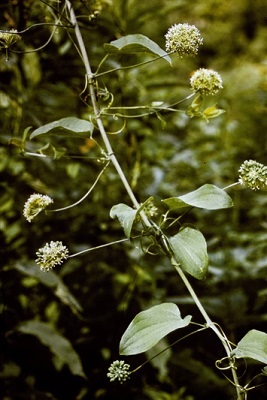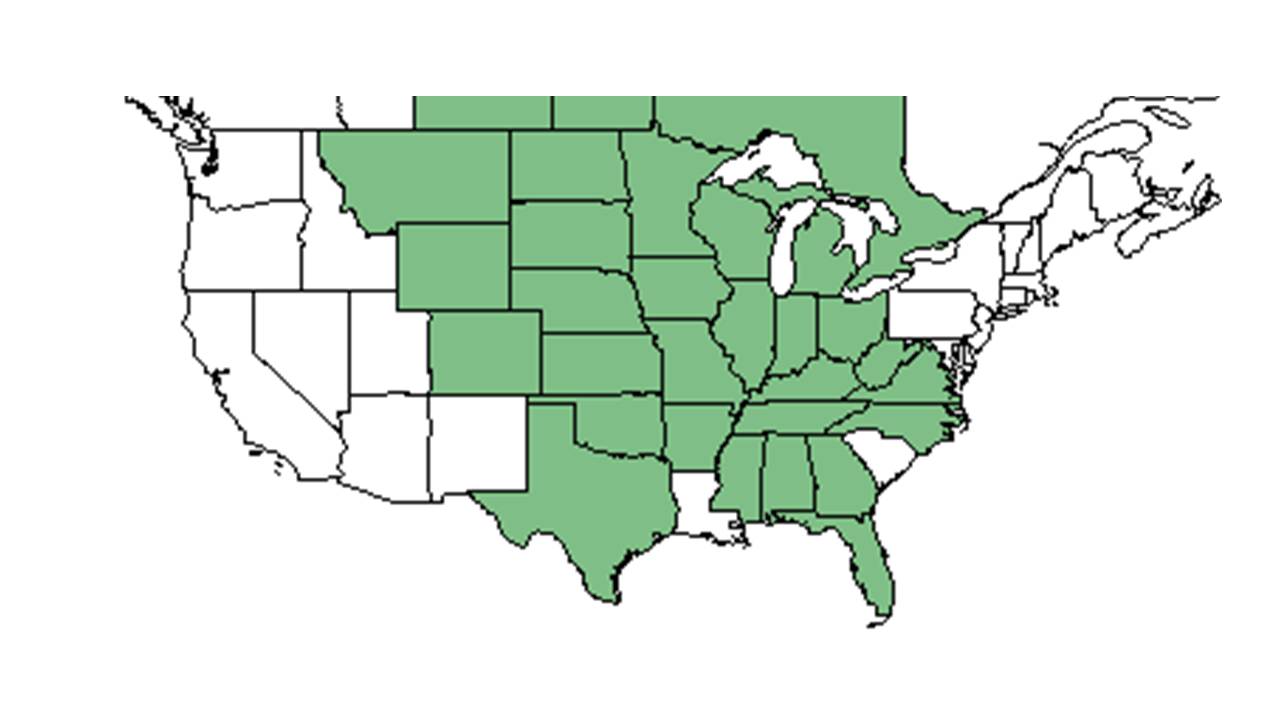Difference between revisions of "Smilax lasioneura"
Krobertson (talk | contribs) |
|||
| Line 29: | Line 29: | ||
==Ecology== | ==Ecology== | ||
===Habitat=== <!--Natural communities, human disturbed habitats, topography, hydrology, soils, light, fire regime requirements for removal of competition, etc.--> | ===Habitat=== <!--Natural communities, human disturbed habitats, topography, hydrology, soils, light, fire regime requirements for removal of competition, etc.--> | ||
| − | In the Coastal Plain in Florida, ''S. lasioneura'' can occur in mesic woodlands; calcareous woodlands; wooded seepage slopes; ridges between ravines; pine-oak-hickory woods; and mixed pine-hardwood forests | + | In the Coastal Plain in Florida, ''S. lasioneura'' can occur in mesic woodlands; calcareous woodlands; wooded seepage slopes; ridges between ravines; pine-oak-hickory woods; and mixed pine-hardwood forests. <ref name="FSU Herbarium">Florida State University Robert K. Godfrey Herbarium database. URL: [http://herbarium.bio.fsu.edu http://herbarium.bio.fsu.edu]. Last accessed: October 2015. Collectors: Loran C. Anderson, Bill Boothe, Marcia Boothe, A.F. Clewell, K. Craddock Burks, Patricia Elliott, Angus Gholson, R.K. Godfrey, Gary R. Knight, Richard S. Mitchell, Lovett E. Williams Jr. States and Counties: Florida: Gadsden, Jackson, Jefferson, Leon, Liberty. Compiled by Tall Timbers Research Station and Land Conservancy.</ref> Soils include loam, sandy loam and loamy sand. <ref name="FSU Herbarium"/> Associated species include ''Arisaema, Toxicodendron, Trillium, Smilax ecirrhata,'' and bloodroot. <ref name="FSU Herbarium"/> |
===Phenology=== <!--Timing off flowering, fruiting, seed dispersal, and environmental triggers. Cite PanFlora website if appropriate: http://www.gilnelson.com/PanFlora/ --> | ===Phenology=== <!--Timing off flowering, fruiting, seed dispersal, and environmental triggers. Cite PanFlora website if appropriate: http://www.gilnelson.com/PanFlora/ --> | ||
| − | It has been observed flowering March through July and fruiting March through November | + | It has been observed flowering March through July and fruiting March through November. <ref name="FSU Herbarium"/> |
<!--===Seed dispersal===--> | <!--===Seed dispersal===--> | ||
<!--===Seed bank and germination===--> | <!--===Seed bank and germination===--> | ||
| Line 46: | Line 46: | ||
==References and notes== | ==References and notes== | ||
| − | |||
Revision as of 15:46, 8 August 2016
| Smilax lasioneura | |
|---|---|

| |
| Photo by W.H. Wagner (slide collection), permission and posted by University of Michigan Herbarium Michigan Flora Online | |
| Scientific classification | |
| Kingdom: | Plantae |
| Division: | Magnoliophyta – Flowering plants |
| Class: | Liliopsida – Monocotyledons |
| Order: | Liliales |
| Family: | Smilacaceae |
| Genus: | Smilax |
| Species: | S. lasioneura |
| Binomial name | |
| Smilax lasioneura Hook. | |

| |
| Natural range of Smilax lasioneura from USDA NRCS Plants Database. | |
Common name: Blue Ridge carrionflower
Contents
Taxonomic notes
Synonyms: Smilax herbacea var. lasioneura (Hooker) A.L.P.P. de Candolle; Nemexia lasioneuron (Hooker) Rydberg
Description
A description of Smilax lasioneura is provided in The Flora of North America.
Distribution
Ecology
Habitat
In the Coastal Plain in Florida, S. lasioneura can occur in mesic woodlands; calcareous woodlands; wooded seepage slopes; ridges between ravines; pine-oak-hickory woods; and mixed pine-hardwood forests. [1] Soils include loam, sandy loam and loamy sand. [1] Associated species include Arisaema, Toxicodendron, Trillium, Smilax ecirrhata, and bloodroot. [1]
Phenology
It has been observed flowering March through July and fruiting March through November. [1]
Conservation and management
Cultivation and restoration
Photo Gallery
References and notes
- ↑ 1.0 1.1 1.2 1.3 Florida State University Robert K. Godfrey Herbarium database. URL: http://herbarium.bio.fsu.edu. Last accessed: October 2015. Collectors: Loran C. Anderson, Bill Boothe, Marcia Boothe, A.F. Clewell, K. Craddock Burks, Patricia Elliott, Angus Gholson, R.K. Godfrey, Gary R. Knight, Richard S. Mitchell, Lovett E. Williams Jr. States and Counties: Florida: Gadsden, Jackson, Jefferson, Leon, Liberty. Compiled by Tall Timbers Research Station and Land Conservancy.